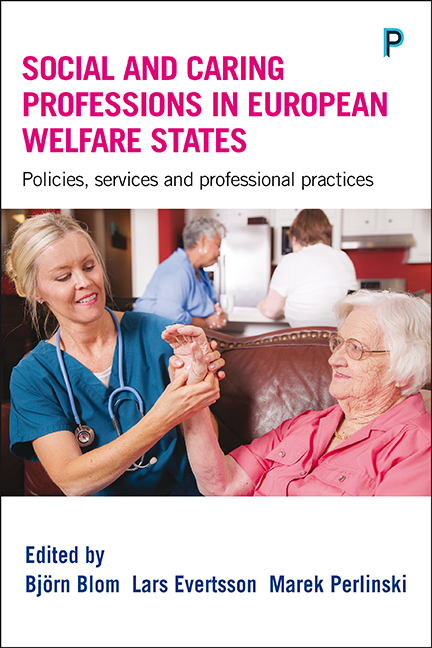 Social and Caring Professions in European Welfare States
Social and Caring Professions in European Welfare States Book contents
- Frontmatter
- Contents
- List of tables and figures
- Notes on contributors
- Preface
- one European social and caring professions in transition
- Part 1 Knowledge, reflection and identity in the social and caring welfare professions
- Part 2 Control, regulation and management
- Part 3 Collaboration, conflict and competition
- Part 4 Assessment, negotiation and decision making
- Index
four - Professional supervision and professional autonomy
Published online by Cambridge University Press: 05 April 2022
- Frontmatter
- Contents
- List of tables and figures
- Notes on contributors
- Preface
- one European social and caring professions in transition
- Part 1 Knowledge, reflection and identity in the social and caring welfare professions
- Part 2 Control, regulation and management
- Part 3 Collaboration, conflict and competition
- Part 4 Assessment, negotiation and decision making
- Index
Summary
Introduction
Through professional supervision, practitioners engage in a relationship with a supervisor enabling both a place and space to refine and develop professional identity, knowledge and skills and for reflectively examining the challenges faced in everyday practice. Supervision itself has a long history and is a well-established component of the health and social care professions. In recent years, however, relentless changes in the nature of professional roles within these contexts have led to corresponding variations in how professional practice supervision is configured and delivered (Karvinen-Niinikoski, 2009). As a contested practice, the linking of supervision and managerial surveillance in social work is not new (Beddoe, 2010); this tension is also considered in Karvinen-Niinikoski's (2004) discussion on critical reflection and supervision.
These challenges are increasingly associated with the dominance of New Public Management (NPM) practices and their influence on the management of social work services (Beddoe et al, 2015). Manthorpe and colleagues (2013, p 3) note the presence of a kind of dyadic approach in discussions of supervision in social work, where supervision is grasped either as largely introspective (a therapeutic model) or as its antithesis, an instrumental tool for surveillance and the soft exercise of power and authority. Autonomous professionals are presented as reflective professionals with demands for reflexivity in their agency and for relational expertise. In social work they report work stress associated with feelings of losing their professional autonomy and commonly experience a sense of management intrusion into clinical decision making (Lymbery, 1998). With the advent of new models of public management, and technologies of control such as evidence-based practice and clinical governance, managerial bureaucracies are asserting greater control of the professions than ever (Coburn, 2006). In response to these changes the expansion of supervision can be understood as a likely forum for the maintenance and development of unique professional expertise.
Tensions between professional autonomy and managerial accountability are also reflected in the changing positions of professions more broadly (Tsui and Cheung, 2004). The links between NPM and professionalism in the public service context of western post-industrial societies has been examined by Evetts (2009). Evetts was interested in clarifying to what extent a new and different type of professionalism is developing and depicts an emerging mixture of two ideal types of professions: the organisational and the occupational.
- Type
- Chapter
- Information
- Social and Caring Professions in European Welfare StatesPolicies, Services and Professional Practices, pp. 53 - 66Publisher: Bristol University PressPrint publication year: 2017


